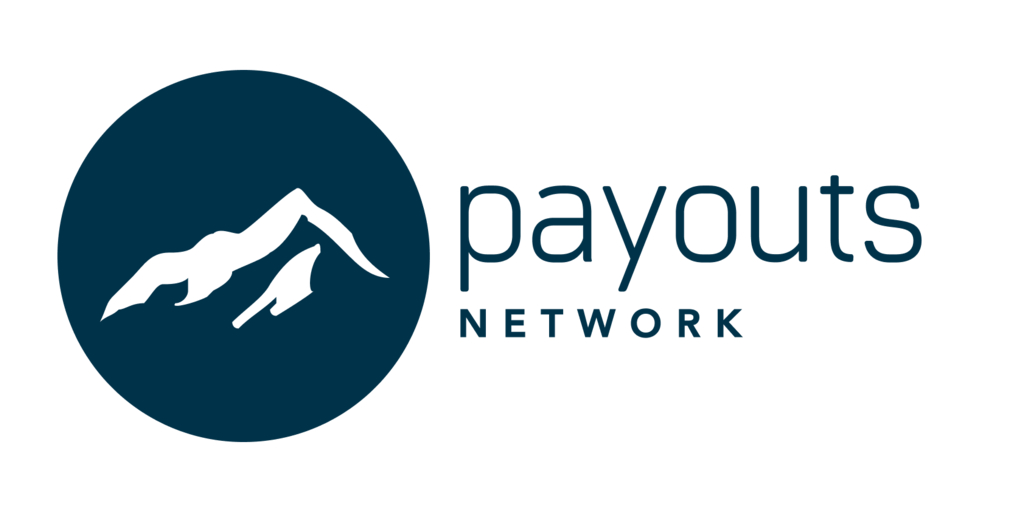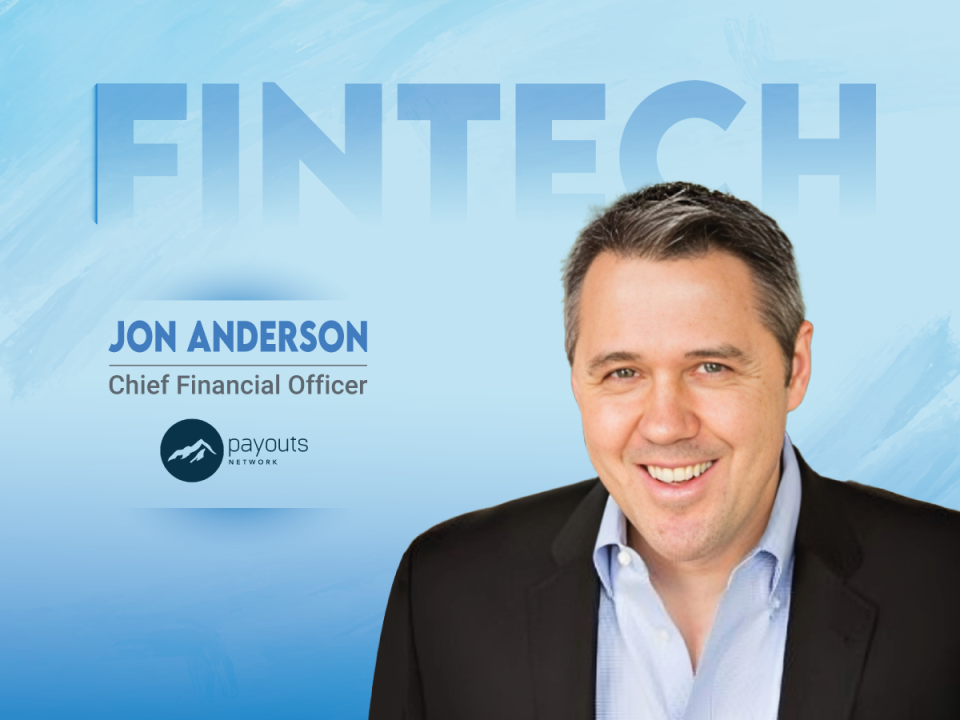Jon Anderson, Chief Financial Officer, Payouts Network, (the modern B2C payments platform that transforms consumer experiences) chats with us about the evolving global payments landscape in this fintech catch-up:
Hi Jon, tell us about yourself and what you are looking forward to as Payout Network’s new CFO?
I’ve spent the last couple of decades deeply immersed in the payments and financial services industries, where I’ve seen the powerful impact of disruption. I’m particularly drawn to companies that find a unique position in the market with great potential to transform legacy payment methods—like Payouts Network. The company has assembled an impressive team of industry veterans and an engaged board, all dedicated to pushing boundaries. Their innovative digital payment solutions simplify outdated B2C payment processes, and their dedication to enhancing the customer experience builds stronger bonds between merchants and consumers to foster true brand loyalty.
At my core, I’m a builder. I get real satisfaction from helping early-stage companies grow and succeed. This role at Payout Network allows me to use my background in financial strategy and systems integration to support the company’s continued growth, and I’m very excited about what the future holds.
What are some of the most interesting B2C and B2B fintech innovations from the global fintech market that are of interest to you?
I’m particularly fascinated by two major trends in the payments space: embedded payments and payment digitization. Over the past few years, these innovations have had dramatic effects, from facilitating commerce through a wide range of applications to creating a more seamless and integrated purchase and payment experience for both consumers and businesses. The ability to tap our phones at the grocery checkout, order a ride and pay instantly with a digital wallet, or receive an electronic invoice that we can settle with a single tap—while the payment automatically updates the merchant’s records—is truly incredible.
Read More: Keeping up with AI in Accounting: 5 Crucial Skills to Learn
Take us through some of your growth strategies in fintech and what tips you’d share with peers in fintech?
Growth strategies will vary significantly based on the fintech, the industry, and where the product is at in its lifecycle. For example, a young B2B payments company will approach growth differently than an established player. However, there are some fundamental questions that every fintech should address. First, does your product resonate in the market? Is the total addressable market (TAM) large enough to support your growth goals? And is your product on equal footing or superior to others in the space? If the answer to these questions is yes, the foundation of growth rests on three core pillars: people, product and process.
In my experience, people are the most fundamental part of this equation. You need the right people in key roles who understand and believe in the company’s mission. Without this, even the best strategies can fall short. Product is also vital, and it’s crucial to understand that it’s ever-changing. In fintech, innovation moves fast, and staying relevant means listening to customers, understanding their challenges, and having a focused product roadmap that addresses how your products are going to meet your customer’s needs now and in the future. Always continue to innovate and invest in your products in a disciplined way. Avoid the temptation of a “spray and pray” product approach—be clear and focused. And remember that what works today may not be effective tomorrow.
Lastly, robust processes with meaningful metrics are fundamental to growth. Measure what truly matters. Build strong processes and continue to examine and improve them. This will create a reliable structure to ensure you are effectively reaching customers, driving team success, and fostering product evolution. Together, the three pillars of people, product, and process will set the foundation for growth and customer retention now and in the future.
What about today’s state of digital payments is changing the scope of payments networks in your view?
Open Banking, the in-store and in-app adoption of digital wallets, the rise of account-to-account (A2A) payments and other payment alternatives like crypto are creating new challenges for traditional payment networks to maintain their share of electronic payment volumes. In my view, payments networks are adapting by making it easier to integrate their solutions into apps and mobile wallets. They’re also expanding their willingness to partner with and participate in the flow of crypto transactions, allowing them to connect with traditional financial infrastructure.
How do you envision the future of fintech and digital payments?
I see the future of fintech and digital payments much like it exists today. The foundation and plumbing of the industry will continue to be governed by large banks, the Federal Reserve, large payment processors, and regulated financial institutions. These institutions aren’t typically designed for rapid innovation—and for good reason. Their primary role is to ensure the stability and structure of the financial system. While this system isn’t perfect, it has provided overall stability, with large institutions stepping in when needed, as we saw in the 2007-2008 financial crisis and, more recently, with the Silicon Valley Bank collapse.
I also believe that if and when cryptocurrencies become more mainstream, they’ll likely fall under a similar regulatory framework to ensure stability as they integrate into commerce. This creates an incredible opportunity for fintechs to continue leading innovation in the industry, taking risks, and ultimately driving the innovation and R&D pipelines for the large financial institutions that are the ultimate acquirers of many of these businesses.
Thoughts around the impact of AI on fintech?
AI will play a huge role in shaping how fintechs operate in the future. AI and machine learning are already enhancing customer experience and adding value across many fintech platforms, especially those that use embedded payments. It will continue to eliminate many repetitive tasks and reduce errors in processes done by humans today.
AI also provides tremendous value by unlocking the potential of massive amounts of transactional data, helping to provide more personalized customer interactions, better-targeted offerings, and enhanced payment fraud protection.
Of course, AI’s influence isn’t all positive—it brings its own set of challenges, especially as it continues to evolve. But there’s no doubt that AI will continue to impact the industry in both exciting and complex ways.
Read More: Global Fintech Series Interview with Frank Pagano, Executive Sales Director at VizyPay
[To share your insights with us, please write to psen@itechseries.com ]

Payouts Network is the leading next-gen B2C payment and disbursements provider, that transforms millions of customer experiences to drive real brand loyalty. The one-of-a-kind platform helps businesses deliver real-time compensation, incentive, reward, or loyalty payment exactly when and how consumers prefer. Serving Fortune 100 payment and credit card processors, leading global airlines, gaming loyalty providers and many other corporate payors, Payouts Network enables thousands of banks, issuers, fintechs and non-financial brands to layer the technology onto their existing tech stack or loyalty program with simple API integrations. Decades of experience, rich consumer interaction data and full-service programs deliver payment strategies that dramatically increase value and ROI.
Jon Anderson is the Chief Financial Officer of Payouts Network, responsible for leading the company’s financial strategy, driving scalable growth and implementing technology-driven financial processes. With over 25 years of experience, Jon has directed fiscal strategy and operations across SaaS, fintech financial services, and public companies. Jon previously served as CFO and COO at Dama Technology and held leadership roles at Campus Advantage, Netspend and KPMG. He holds a Bachelor’s in Finance and Accounting from Montana State University, is a CPA, and completed Stanford’s Emerging CFO Program.
